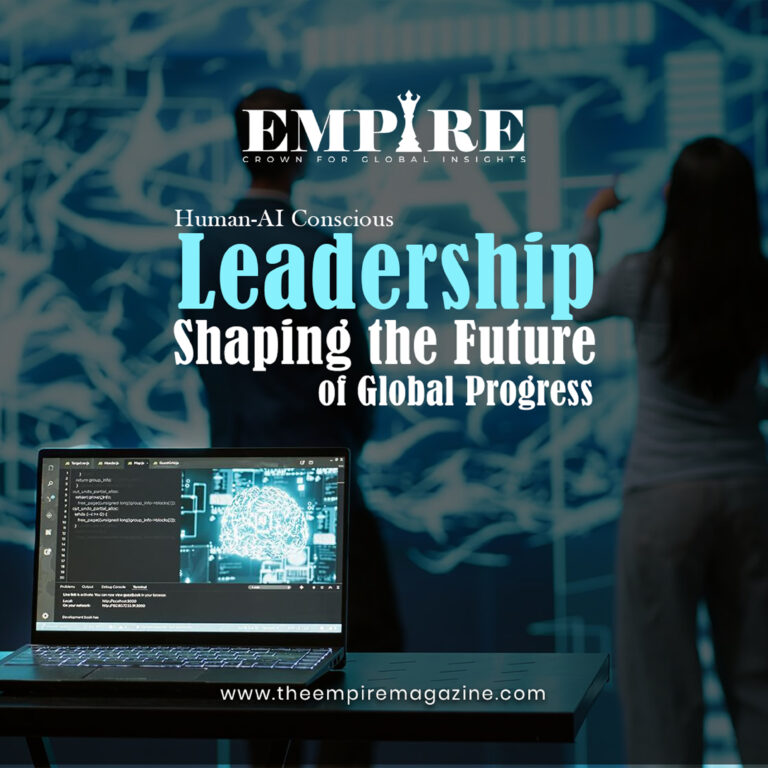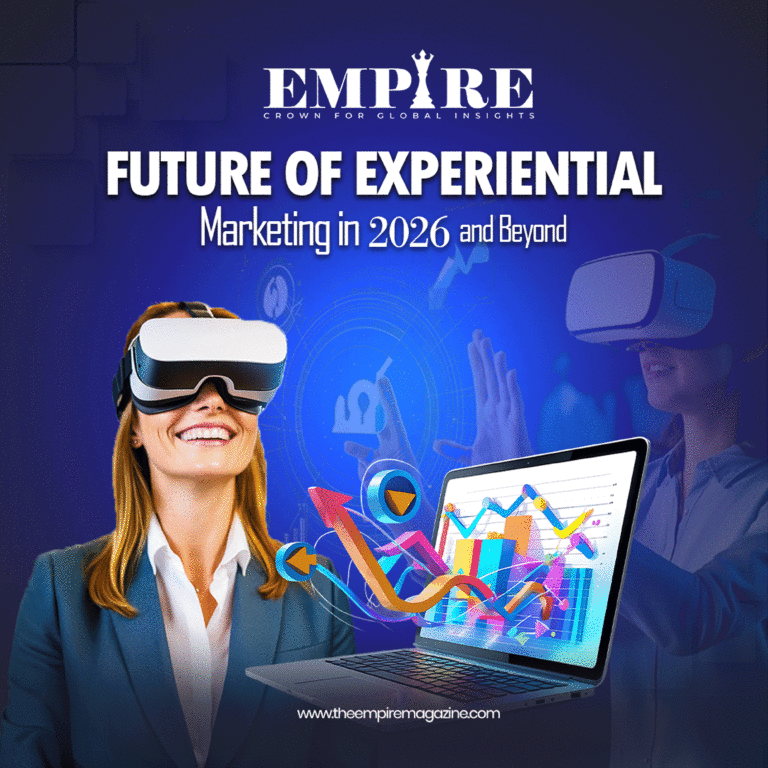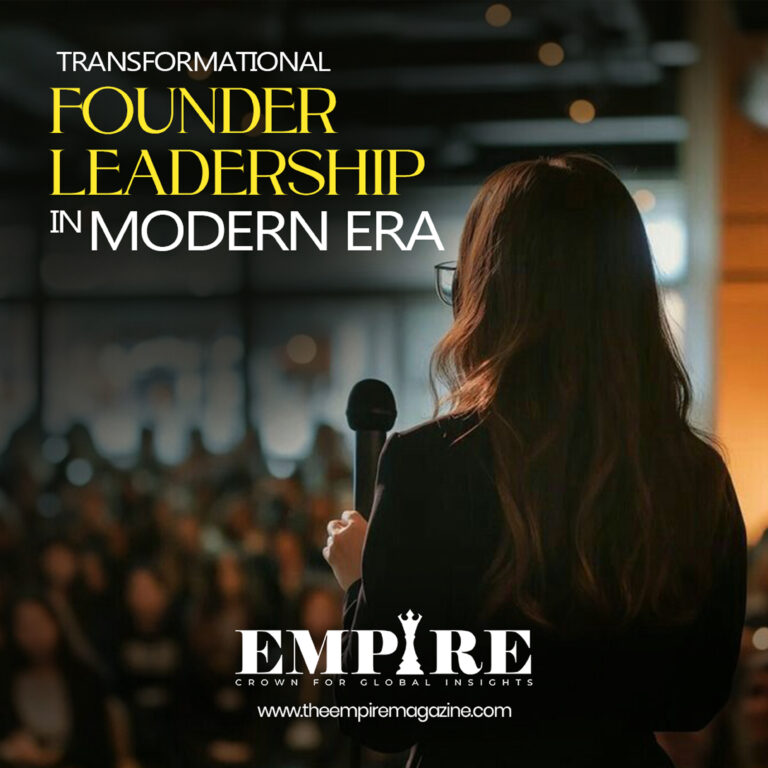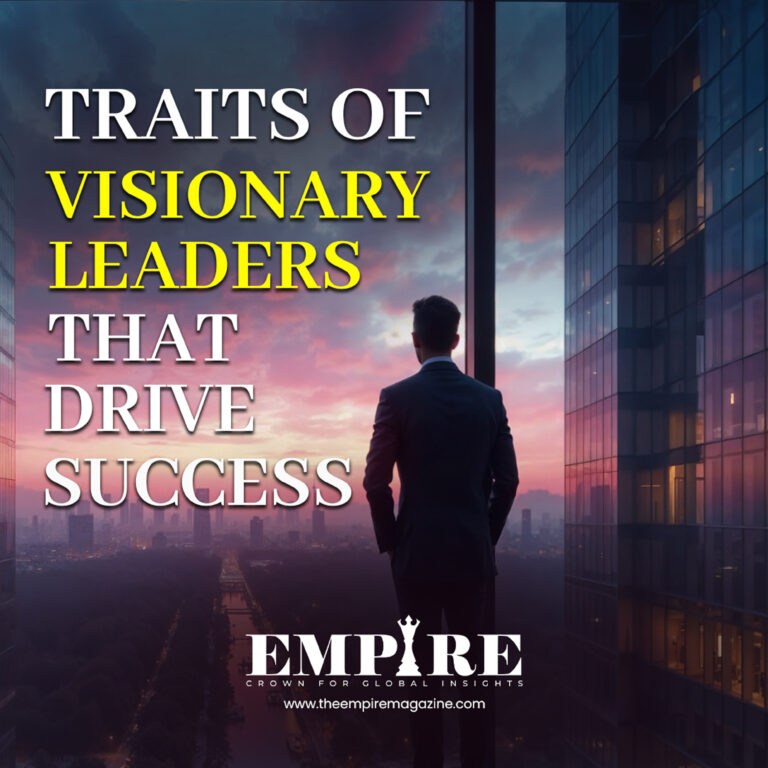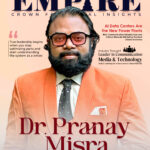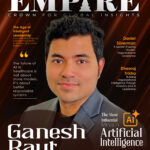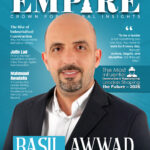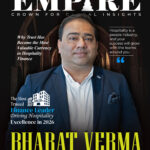Dr. Eng. Mohamed Al Ali: Redefining Human Potential through Behavioural Science
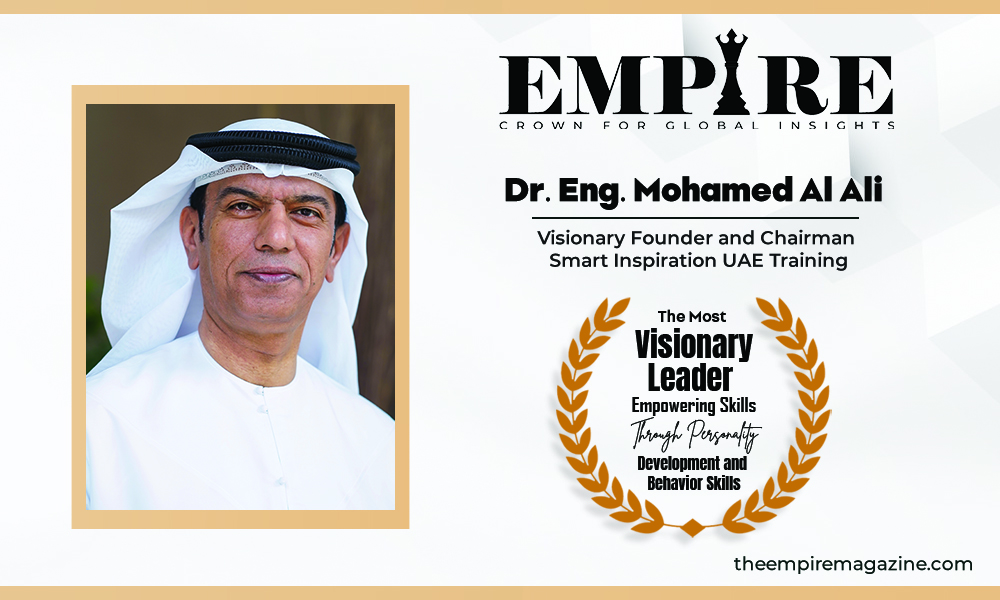
Some people study behaviour to correct it. Others study it to understand it. But very few build systems around that understanding, and even fewer turn it into transformation.
Dr. Eng. Mohamed Al Ali belongs to that rare category. For over the past 6 years, he has quietly built one of the most thoughtful behavioural training ecosystems in the UAE. As the visionary founder of Smart Inspiration UAE Training, Dr. Mohammed embodies the spirit of lifelong learning. With a PhD in Knowledge Transfer and a passion for behavioural sciences, communication, and cognitive psychology, his journey spans disciplines and continues to evolve. Driven by the belief that ‘no mind should be left behind,’ today he blends research with real-world impact, championing a vision where self-awareness, science, and human potential come together.
Seeing What Others Overlooked
Dr. Mohammed founded Smart Inspiration UAE Training in 2019, with a vision that began as early as 2000. What started as a personal mission has grown into a system, a space where people walk in, not for lectures or labels, but to get trained to understand themselves better. The training center is officially authorized Government of Dubai and is a recognized member of the Sheikh Mohammed bin Rashid Establishment for Small and Medium Enterprises (Dubai SME)
The work focuses on behaviour, not just how it manifests, but where it begins. Many people go through life unaware of why they react a certain way, why they clash with authority, or why progress feels just out of reach. The reasons often run deeper than day-to-day dynamics. In Dr. Mohammed’s view, behavioural patterns are shaped long before adulthood. In all cases, even before birth. The mother’s emotional and physical state during pregnancy, her nutrition, stress levels, and surrounding environment can leave lasting imprints on a child’s development. Fathers, too, play a role by shaping that environment.
At Smart Inspiration, these patterns are a learning through training sessions. The team uses a science-led training tool called Rockence Genetic Behaviour today called as Rockomer Genetic Behavior Analysis (RGB) analysis, a complex algorithm built on over 50,000 scientific papers, to study behavioural tendencies through fingerprint mapping. Just a non-invasive method that reveals how a person processes, perceives, and responds to the world around them.
This isn’t about correction through authority, it’s about self-discovery. Once the behavioural map is clear, training begins through a combination of nutritional guidance, physical activities, and skill-based coaching. The goal isn’t to fix what’s broken, but to align a person with who they truly are. And when that happens, behavioural change becomes visible, not just in the individual, but across families, teams, and organizations.
Over the last six years, Smart Inspiration has become a trusted partner to HR teams, corporate leaders, and educators. The transformation is surface level as well, but it begins with deep self-awareness and leads to behavioural realignment. For Dr. Mohammed, that’s the real achievement. The behavioural transformation impacts professional growth, and a life lived with greater clarity, harmony, and purpose.
At the heart of it all is a quiet promise: no one should be left behind simply because no one took the time to understand them.
Decoding the Mind, Gently
Dr. Mohammed describes RGB analysis as a tool that is far deeper than it appears. The analysis can technically begin at age two, though at his centre, they start working with children at the age of six. The report outlines several key traits, such as brain type, mind frame, grasping and communication abilities, mental fatigue patterns, cooperativeness, and self-regulation. It also highlights emotional tendencies such as anger, worry, bitterness, or depression.
For children, the findings point to the learning styles and environments where they’re most likely to thrive. For adults, it identifies the roles they’re best suited for, whether they’re inclined toward leadership, team-based work, or specialised functions. The report even breaks down their zones of peak performance and career fit.
However, for Dr. Mohammed, the analysis isn’t just about labelling strengths. It’s about understanding what holds people back and correcting it. Behaviour, he explains, is often judged on social fit. Neurodivergence, for instance, has become a buzzword, but everyone carries its traits to some extent. The issue is rarely the behaviour itself, but how it is shaped by early environments, especially anxious or disconnected parenting.
Bridging Inner Patterns and Outer Progress
Over 300 individuals have been trained so far through the centre’s behavioural programs and RGB-based Personality Development and Behavioural Skills. According to Dr. Mohammed, the numbers continue to rise steadily.
The work has already begun to make a global impact. With content available on platforms like Spotify and a growing presence in the UAE, more Emiratis are now entering the programme.
Dr. Mohammed also highlights that the centre operates beyond training; it functions as a research-led institution. He and his team have produced eight scientific papers, three of which are currently under review in the UK. These are not theoretical publications. Each paper is based on real cases, individuals who’ve gone through the training process, shown measurable behavioural changes, and demonstrated long-term improvements.
Letting Results Lead the Way
The expansion of Dr. Mohammed’s training work hasn’t been driven by aggressive outreach or marketing. It’s been organic. People walk in on their own, drawn by curiosity, recommendation, or the quiet evidence of visible results. The programmes are already recognised by KHDA under the Dubai government, and that official listing, coupled with presence across platforms like Spotify and video channels, has made visibility a byproduct, not a goal.
He recalls the first three years as a foundational phase, constructing the framework, proving outcomes, and earning trust. Now in its sixth year, the shift is clear. It’s not just students or parents reaching out anymore. Corporations have started sending in their teams, recruiters, employees, and managers to undergo behavioural training. The sessions are never generalised. Each case is handled individually. That’s part of the reason it works. One-on-one formats ensure that training adjusts to each person’s neurological and behavioural blueprint.
These changes take time. It’s not a crash course, but a slow rewiring, often taking up to six months for neuroplasticity to respond. But once the results start to show, the momentum builds on its own. Parents begin with their children. Then they join in themselves.
The turning point, Dr. Mohammed notes, came during the COVID-19 crisis. Intelligence Quotient (IQ) wasn’t enough to hold a job or maintain emotional stability. That’s when Emotional Quotient (EQ) entered the picture, and that’s where this work began to stand out. By focusing on emotional intelligence, subconscious blocks, and energy awareness, the training started unlocking potential that traditional systems had missed.
Today, the results are visible. Children who struggled have grown more capable over the months and years. Adults who once underperformed in the corporate world, due to anxiety, self-doubt, or unseen limitations, have transitioned into stronger roles. The science might begin with a report, but the transformation is lived, slow, and real.
Recognition Earned by Transforming Lives
During the COVID-19 period, one of Dr. Mohammed’s behavioural science training models was recognised at a global platform called Education2.0. Dr. Mohamed was identified as Outstanding Leadership in Education
Across the years, awards and certifications have followed. These include recognition as a Master Trainer in Genetic Behavior, a Genetic Behavior CBT Consultant, and a Practitioner in Applied Genetic Behavior Analysis, all issued by Mark Intelligentia Pvt. Ltd. He also holds advanced certifications in Corporate Communications Management, Cognitive Behaviour Therapy, Leadership and Reflective Psychology, and Nutritional Psychology (Psychobiotics).
However, for Dr. Mohammed, these acknowledgements are simply milestones, indicators that the effort is moving in the right direction. The everyday work continues one-on-one sessions, long-format training, and ongoing case studies grounded in science and neuroplasticity.
Mapping Minds, Not Just Metrics
Public systems often cover medical emergencies and physical health, but rarely behavioural development. Dr. Mohammed sees this as a missing piece in both education and social welfare. When people begin to understand their behavioural patterns, they don’t just function better, they experience life more fully. In his words, it’s about adding life to life.
People arrive at Smart Inspiration UAE Training because they’re searching their way in, curious, not desperate. And once they begin, they often bring others along.
In one case, a young woman with strong emotional, intrapersonal, interpersonal, and linguistic intelligences found it difficult to navigate her day-to-day. Her grasping speed was high, but her energy and perception were misaligned. Over two years, she followed a tailored plan involving nutritional adjustments, listening-based neural training, and skill-building routines. Today, she leads as a creative director at a major conglomerate.
Another success story involves around someone who carried the imprint of a turbulent gestational period, born into dysfunction and raised under stress. Emotional sensitivity ran high. Day-to-day life felt overwhelming. Across six years, her journey included grounding exercises, sound frequency work, mindful emotional release, and structured support. Today, she works in marketing, with steadier rhythms, both personally and professionally.
These aren’t just outcomes, they’re reminders. Behaviour can be shaped. And when shaped with care and science, it becomes an advantage, not just for the individual, but for families, workplaces, and communities at large.
Unlocking Potential by Shaping Systems
Dr. Mohammed believes meaningful change begins with those responsible for shaping others. The centre has developed a structured approach to train educators, not all at once, but through a carefully tiered model. Rather than reaching every teacher directly, the focus is on training key specialists within schools, institutions, and universities. Once equipped, they don’t work in isolation. Ongoing guidance, monitoring, and consultation from the centre ensure that the training is applied correctly and continuously improved.
This approach prioritises young learners. Children are not just students, they’re the future. Teaching them requires more than a syllabus; it requires understanding how they think, absorb, and grow. The aim isn’t to memorise and repeat, but to build capacity from within. Countries like Japan, China, and Poland have already begun experimenting with shorter, more effective school hours, where education is about engagement, not pressure. The idea is simple: when children feel safe and seen, they stay. They don’t run when the bell rings.
In today’s reality, many children return from school to disconnected homes. Screens replace attention, and parents are absorbed in their own worlds. Dr. Mohammed’s observation is clear: these aren’t always homes. They’re often just houses, and that lack of presence spills over into behaviour.
The science behind RGB analysis addresses this gap. It captures both observable actions and intangible traits, competencies that often go unnoticed in traditional systems. If introduced from the earliest years, preschool, even kindergarten, educators could design learning environments tailored to each child’s innate strengths.
The impact of early understanding lasts well into adulthood. Many children today grow into high-achieving individuals with impressive IQs, yet struggle with collaboration, empathy, or resilience. Without the right balance between IQ and EQ, knowledge alone doesn’t translate into performance. Especially for children raised in unstable or emotionally disconnected environments, fear becomes a silent companion.
By the time it shows, it’s often too late. Intervening early, before behavior become crises, isn’t just a suggestion. It’s a responsibility. Because education isn’t just about what children learn, it’s about who they become while learning it.

